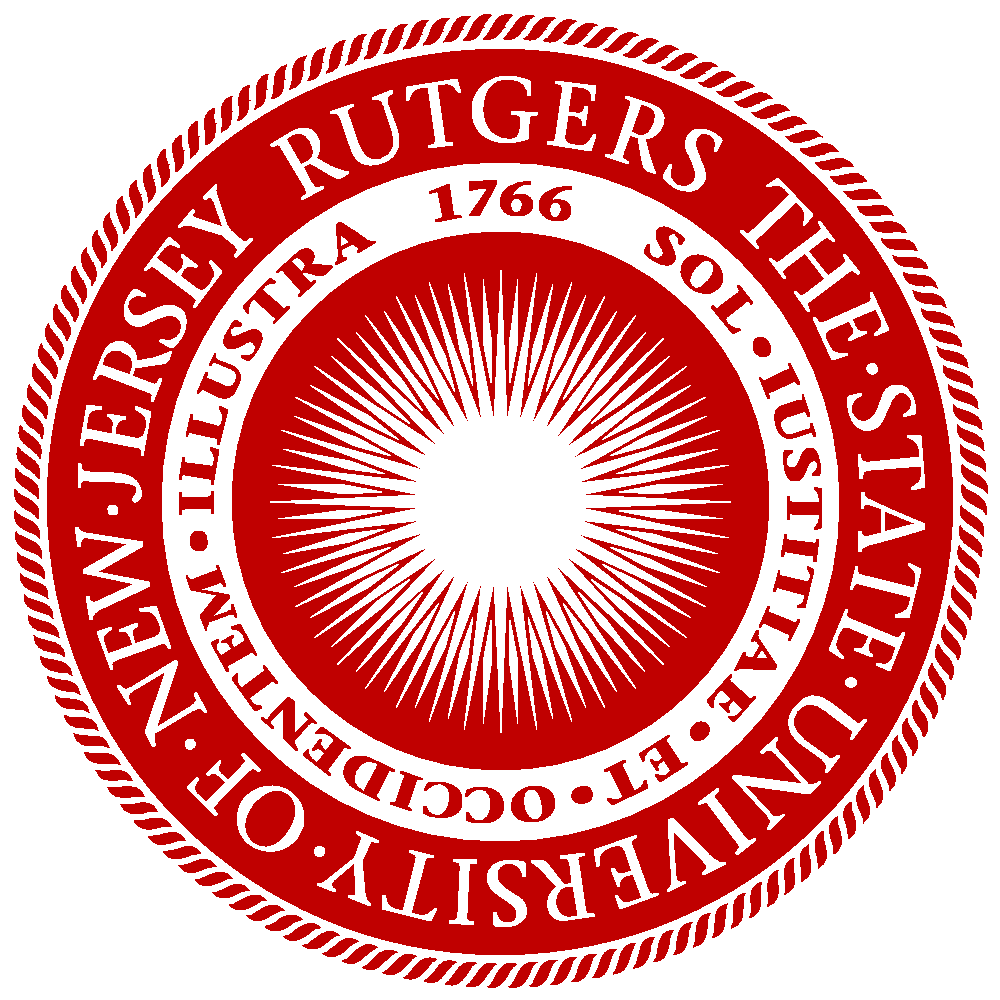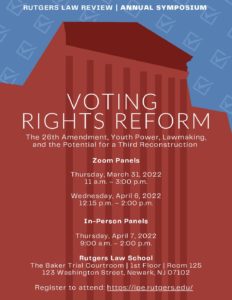2021 marks the 50th Anniversary of the Twenty-Sixth Amendment, which lowered the voting age from twenty-one to eighteen and outlawed age-based discrimination in ballot access. By July 1, 1971, the Amendment was ratified by 38 states in a record-setting 100 days. Youth activists and civil rights proponents banded together to accomplish this feat during a confluence of reform movements now called the Second Reconstruction.
Fifty years later, state legislatures across the country once again threaten the voting rights of young people and communities of color. In 2021, state legislators introduced 400 voter suppression bills across 49 states, and at least 30 of those bills were enacted into law in 18 states. The efforts to restrict voting have continued in 2022; as of January 14, legislators in at least 27 states have introduced, pre-filed, or carried over 250 bills with restrictive provisions. As of March 1, 2022, the Brennan Center has tracked 60 active voting-related lawsuits in 20 states and Washington, D.C.
These voter suppression bills impact all voters-at-large and specifically target young voters and voters of color, despite new election modernization trends in 2020 amidst the COVID-19 global pandemic. Against a backdrop of national protests and political and racial violence, some scholars suggest that we may be entering a new crucial period of reform—a Third Reconstruction.
The 2022 Symposium of the Rutgers University Law Review will explore the legislative history of the Twenty-Sixth Amendment and its lessons and relevance today, the appropriate standards of review that courts should use when reviewing challenges to youth voting restrictions, and a data-driven perspective on the youth vote and the specific voting mechanisms that empower the youth vote.
Registering for Panels
Click on the links below to register for CLE credit for any of the Symposium events, and create an account. The promo code for this event is NOCLE26.
Day 1
Voting Rights Reform: The 26th Amendment, Youth Power, Lawmaking, and the Potential for a Third Reconstruction – Part 1
Thursday, March 31, 2022 | 11:00 AM EDT – 3:00 PM EDT | Zoom webinar
CLE: NJ: 4.3 | NY: 4.0 | PA: 3.5
Click here to register for Day 1
Lawmaking, Legal Activism, and the Third Reconstruction.
11:00 AM to 1:00 PM.
This panel explores the process of constitutionalisation and the expansion and protection of constitutional and statutory rights in America. The panel will look to the First and Second Reconstructions as touchstones for contextualizing rights-based struggles in America today. Through the lens of voting rights reform, panelists will highlight the historic and modern role of youth leadership in democratization, and the gains and struggles inherent in the process. The panel will consider the potential for a Third Reconstruction in the 21st Century as the nation works to secure voting rights and election reform despite disinformation, violence, and campaign finance deregulation.
Panelists include: Reverend Cornell Brooks, Professor at the Harvard Kennedy and Divinity Schools, Director of The William Monroe Trotter Collaborative for Social Justice at the Harvard Kennedy School’s Center for Public Leadership, and former President/CEO of the National Association for the Advancement of Colored People (NAACP), and former President/CEO of the New Jersey Institute for Social Justice; Professor Charisa Kiyô Smith of CUNY School of Law; and Evan Marlbrough, Andrew Goodman Foundation Board Member and former student ambassador and fellow and Founder of the Georgia Youth Poll Worker Initiative. Moderating the discussion is Professor Aderson B. Francois, Professor of Law and Director of the Institute for Public Representation Civil Rights Clinic of Georgetown University Law Center, whose scholarly interests include voting rights, education law, and the history of slavery and Reconstruction.
The 26th Amendment: Ratification, Activism, and the Constitutional Amendment Process.
1:15 PM to 3:00 PM.
This panel will feature a live conversation with the original then-youth organizers and congressional aide who succeeded in amending the U.S. Constitution fifty years ago through ratification of the Twenty-Sixth Amendment, thereby lowering the voting age to 18 and outlawing age discrimination in access to the ballot. Panelists will share their experiences on the process of constitutional ratification and the relevance of this historical feat today.
Panelists include Jason Berman, Chief of Staff to Senator Birch Bayh, the Chair of the Senate Subcommittee on Constitutional Amendments. During Jay’s 1976-1978 tenure with Sen. Bayh, his worked included ratification of both the 25th and 26th Amendments to the U.S. Constitution, the effort to reform the electoral college, and passage of Title IX, and passage of the Copyright Act of 1976. Panelist Patricia Keefer led the state and federal organizing effort to ratify the 26th Amendment. She is now the Director of the International Affairs Department with the American Federation of Teachers, and heads the organization’s human rights and labor rights advocacy worldwide, playing a leadership role in political and constitutional reforms in women’s rights, voting rights, and youth political participation in the U.S. and globally as well as democracy development projects in every region of the world. Panelist Yael Bromberg, Esq., is a lecturer at Rutgers School of Law in Elections and the Political Process, legal scholar of the 26th Amendment, and Principal of Bromberg Law LLC. Professor Bromberg serves as Chief Counsel and Strategic Advisor to The Andrew Goodman Foundation, a national organization in 25 states dedicated to making youth voices and votes a powerful force in democracy.
The discussion will be moderated by current youth leaders and journalists Tamia Fowlkes and Shreya Bandyopadhyay of the University of Wisconsin-Madison. Together, they host a podcast called Pod-Cast Your Vote, which aims to mobilize and empower youth voters.
Day 2
Voting Rights Reform: The 26th Amendment, Youth Power, Lawmaking, and the Potential for a Third Reconstruction – Part 2
Wednesday, April 6, 2022 | 12:15 PM EDT – 2:00 PM EDT | Zoom webinar
CLE: NJ: 2.0 | NY: 2.0 | PA: 1.5
Click here to register for Day 2
Reconsidering the 26th Amendment: Voting Age, Criminal Justice, and State Election Law.
12:15 PM to 2:00 PM
This panel will explore issues related to voting rights at the state level. Panelists will offer a comparative analysis of state election law and the right to vote; legislative efforts for pre-registration of 16- and 17-year-olds in advance of turning 18; and municipal efforts to lower the voting age. The discussion will also consider the impact of state criminal statutes on youth voting rights, a relatively underexamined area of law and scholarship, within a larger context of how marginalized communities are deprived of the right to vote through criminal conviction.
Panelists include: Professor Joshua Douglas, prominent election law scholar and author of Vote for US: How to Take Back our Elections and Change the Future of Voting. Clinical Professor Cara Suvall, of the Vanderbilt University Law School Youth Opportunity Clinic, which provides civil legal representation to teenagers and young adults at risk for criminal legal involvement. Laura Brill, founder and director of The Civics Center, founding partner of a Los Angeles litigation and appellate boutique firm, and former clerk to U.S. Supreme Court Justice Ruth Bader Ginsburg. Professor Jenny Diamond Cheng is moderating the discussion; her research examines the boundaries between legal childhood and adulthood and has written extensively about the minimum voting age.
Day 3
Voting Rights Reform: The 26th Amendment, Youth Power, Lawmaking, and the Potential for a Third Reconstruction – Part 3 – IN-PERSON ONLY
Thursday, April 7, 2022 | 8:45 AM EDT – 2:00 PM EDT | Newark
CLE: NJ: 4.2 | NY: 4.0 | PA: 3.5
Click here to register for Day 3
Litigating the 26th Amendment: Jurisprudence and the Path Forward.
9:00 AM to 10:45 AM
This panel will discuss the contours of voting rights and youth voting rights litigation today, the applicable standard of review that applies to these state and federal claims, various challenges legal advocates face in litigating these claims, and gains won through judicial relief and legislative advocacy.
Panelists include Leah Aden, Deputy Director of Litigation at NAACP Legal Defense & Education Fund, Inc. (LDF). Perry Grossman and Ariel Cepeda Derieux of the American Civil Liberties Union (ACLU) Voting Rights Project and the New York Civil Liberties Union (NYCLU). Valencia Richardson, Equal Justice Works Fellow with the Campaign Legal Center and former youth voting rights organizer from Louisiana. Panel Moderator Yael Bromberg, legal scholar, litigator, and chief counsel for the Andrew Goodman Foundation, will discuss emerging jurisprudence centered on the rights guaranteed under the 26th Amendment.
Election Law and Youth Voting: The Role of Universities as Civic Actors.
11:00 AM to 12:45 PM
This panel will discuss the role of institutions of higher education in supporting student voter engagement. Joined by a team of student researchers, panelist Professor Gunther Peck of Duke University will share his pedagogical approach to teaching democracy and highlight how the provisional ballot system in North Carolina impacts students and deprives them of their right to vote. He will be joined by Vice Presidents of Bard College Jonathan Becker and Erin Cannon, who will discuss the role of colleges and universities in defending youth voting rights and democracy domestically and globally, in part based on their two-decades of experience defending voting rights of their students in Dutchess County, NY, most recently through securing an on-campus polling location. Panelist Charles Imohiosen, Esq., President and CEO of The Andrew Goodman Foundation, will offer his experiences from the private and public sector, including as the former co-chair of the voting rights working group for an AMLaw 100 firm, and the current work of the Foundation on over eighty campuses across the nation. Professor Elizabeth Matto, Director of the Center for Youth Political Participation at the Eagleton Institute of Politics, will moderate the discussion, drawing on her work as a teacher, scholar, and practitioner of democratic education and civic engagement.
Keynote Address Luncheon
1:00 PM to 2:00 PM
U.S. Election Assistance Commissioner Ben Hovland will deliver a keynote address focused on election administration and youth voting. Commissioner Hovland will highlight the challenges facing youth voters today and describe his experiences administrating a national election. From the rise of misinformation and disinformation to the National Voter Registration Act, Commissioner Hovland will explore the myriad of facets of youth voting in the United States.
NJ Secretary of State Tahesha Way will deliver a keynote address centered on her experience administrating elections in New Jersey. She will discuss how the Murphy administration protected ballot access for youth voters and voters of color. Secretary Way will highlight the methodology her team employed to achieve historic success during the 2020 election.
 Rutgers University Law Review
Rutgers University Law Review